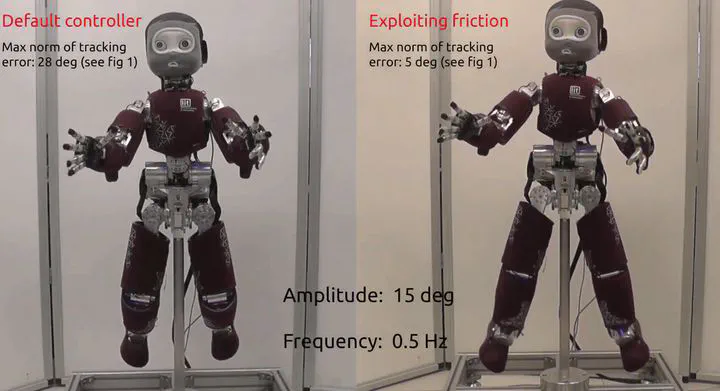Instantaneous Momentum-Based Control of Floating Base Systems
 Image credit:
Image credit:Abstract
In the last two decades a growing number of robotic applications such as autonomous drones, wheeled robots and industrial manipulators started to be employed in several human environments. However, these machines often possess limited locomotion and/or manipulation capabilities, thus reducing the number of achievable tasks and increasing the complexity of robot-environment interaction. Augmenting robots locomotion and manipulation abilities is a fundamental research topic, with a view to enhance robots participation in complex tasks involving safe interaction and cooperation with humans. To this purpose, humanoid robots, aerial manipulators and the novel design of flying humanoid robots are among the most promising platforms researchers are studying in the attempt to remove the existing technological barriers. These robots are often modeled as floating base systems, and have lost the assumption – typical of fixed base robots – of having one link always attached to the ground. From the robot control side, contact forces regulation revealed to be fundamental for the execution of interaction tasks. Contact forces can be influenced by directly controlling the robot’s momentum rate of change, and this fact gives rise to several momentum-based control strategies. Nevertheless, effective design of force and torque controllers still remains a complex challenge. The variability of sensor load during interaction, the inaccuracy of the force/torque sensing technology and the inherent nonlinearities of robot models are only a few complexities impairing efficient robot force control. This research project focuses on the design of balancing and flight controllers for floating base robots interacting with the surrounding environment. More specifically, the research is built upon the state-of-the-art of momentum-based controllers and applied to three robotic platforms: the humanoid robot iCub, the aerial manipulator OTHex and the jet-powered humanoid robot iRonCub. The project enforces the existing literature with both theoretical and experimental results, aimed at achieving high robot performances and improved stability and robustness, in presence of different physical robot-environment interactions.
Type
Publication
Ph.D. Thesis